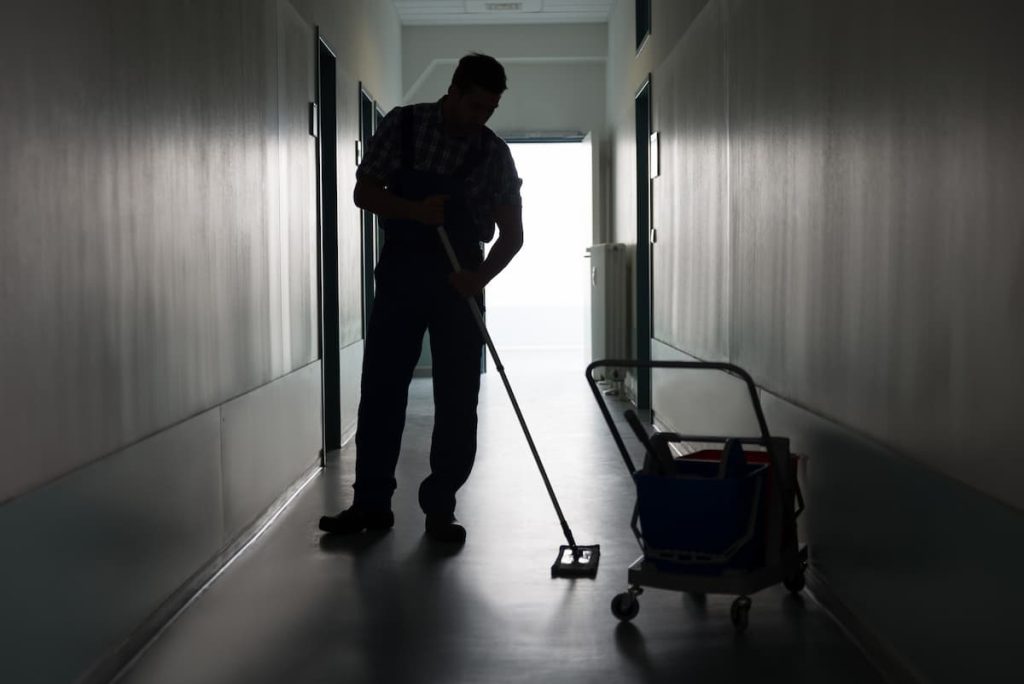Like other workers, janitors are also prone to various workplace injuries. Here are five of the most common risks they face.
Janitors may be the last people you’d think would suffer from a workplace injury. Working as a janitor may seem pretty safe except for the occasional slip and fall. However, contrary to popular belief, janitors face many safety hazards while at work.
Let’s discuss five of the most common risks janitors confront every day while performing their work-related tasks.

Trips, Slips, and Falls
Slips and falls are the most common safety hazard that janitors face. It’s easy for janitors to slip on wet floors, given that part of their job may involve walking on such floors. There’s also the chance that the janitor may trip on an object.
Slip and fall accidents may lead to various types of injuries. Some injuries may be less severe, like bruises or muscle damage, while some may be severe, like concussions or broken bones. Either way, the injured janitor will likely require prompt medical attention.
Chemical Hazards
Janitors often have to use several cleaning agents every day to do a thorough job. Some of these cleaning agents may contain chemicals that could be detrimental to a janitor’s health. Exposure to these chemicals may result in various symptoms, including:
- Skin irritation
- Asthma
- Kidney and heart complications
- Cancer
To keep chemical-related hazards and injuries, employers should inform janitors of harmful chemical substances in cleaning agents. They should also train janitors on the right way to handle these chemical hazards to minimize or eliminate exposure. Lastly, employers must equip janitors with the appropriate personal protective equipment to wear while handling these cleaning chemicals.
Overexertion
Working as a janitor typically involves doing several repetitive movements. Some of these movements occur when janitors:
- Carry heavy buckets
- Lifting garbage cans
- Moving heavy barrels
- Mopping and sweeping, expansive floors
Overexertion and excessive repetitive movement can lead to sprains and strains. Therefore, employers need to give janitors enough breaks to prevent overexertion and fatigue.
Bacteria and Other Biological Hazards
Cleaning up dirt and all sorts of filth may expose janitors to several biological hazards. These biological hazards may include mold, fungus, and all kinds of bacteria. Exposure to these hazards is especially common in areas with poor ventilation. It’s the employers’ responsibility to train janitors on biological hazards and maintain OSHA safety standards.
Equipment Hazards
Improper use of equipment or equipment malfunctions pose a serious safety risk to janitors. That’s why it’s vital for employers to train janitors on the proper use of equipment. Employers also need to inspect the equipment regularly to prevent any malfunctions.
Like other workers, janitors are also prone to various workplace injuries. The employer is responsible for ensuring that janitors work in a safe environment, free from any hazards highlighted above.
However, if you still get injured as a janitor, you may be eligible for workers’ comp benefits. Speak with an experienced St. Louis workers’ compensation attorney at the Law Office of James M. Hoffmann for a free case evaluation to learn more about your legal rights.
